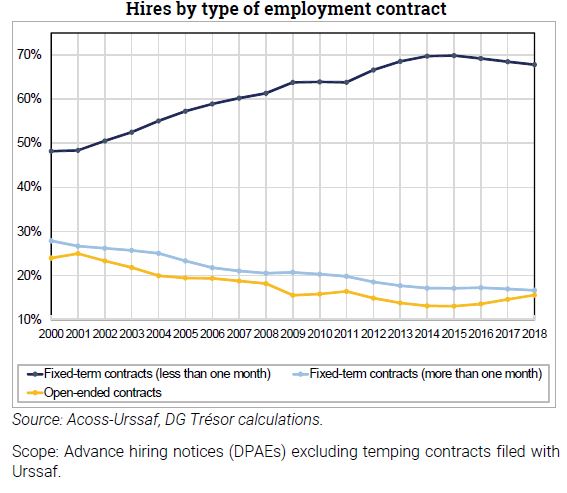Trésor-Economics No. 238 - The development of very short-term employment contracts in France
Since the 2000s, hires on very short-term fixed-term contracts (less than one month) have increased sharply and the median duration of fixed-term contracts has contracted.
Since the 2000s, hires on very short-term fixed-term contracts (less than one month) have increased sharply and the median duration of fixed-term contracts has contracted.
The increase in the number of very short-term hires can be primarily observed in the service sector, where four subsectors of activity account for 80% of the increase: residential care services and social action, arts and entertainment, accommodation and food service, and administrative and support services. Between 2000 and 2017, the use of contracts of less than one month more than doubled in all these sectors.
The growth in short-term contracts over the past twenty years may be linked to sector-specific production and organisational constraints, as well as to regulatory and legal changes. However, due to the lack of studies on the factors behind this increase, it is difficult to establish cause-and-effect relationships.
Compared with employees on long-term contracts, individuals employed on repeated very short-term contracts are penalised in several respects: their incomes are lower, they have less access to vocational training, and their prospects for moving towards stable employment are limited. They also have more difficulties accessing housing and getting bank loans.
Some recently-adopted measures could encourage longer-term contracts, such as the permanent establishment of the «open-ended interim contracts» with temping agencies and stronger labour relations at branch level. Recent vocational training measures could even out access to training between employees on fixed-term contracts and those on open-ended ones. Limiting incentives to repeatedly renew short-term contracts is also a key part of unemployment insurance reform, which involves acting by both employers and employees.
